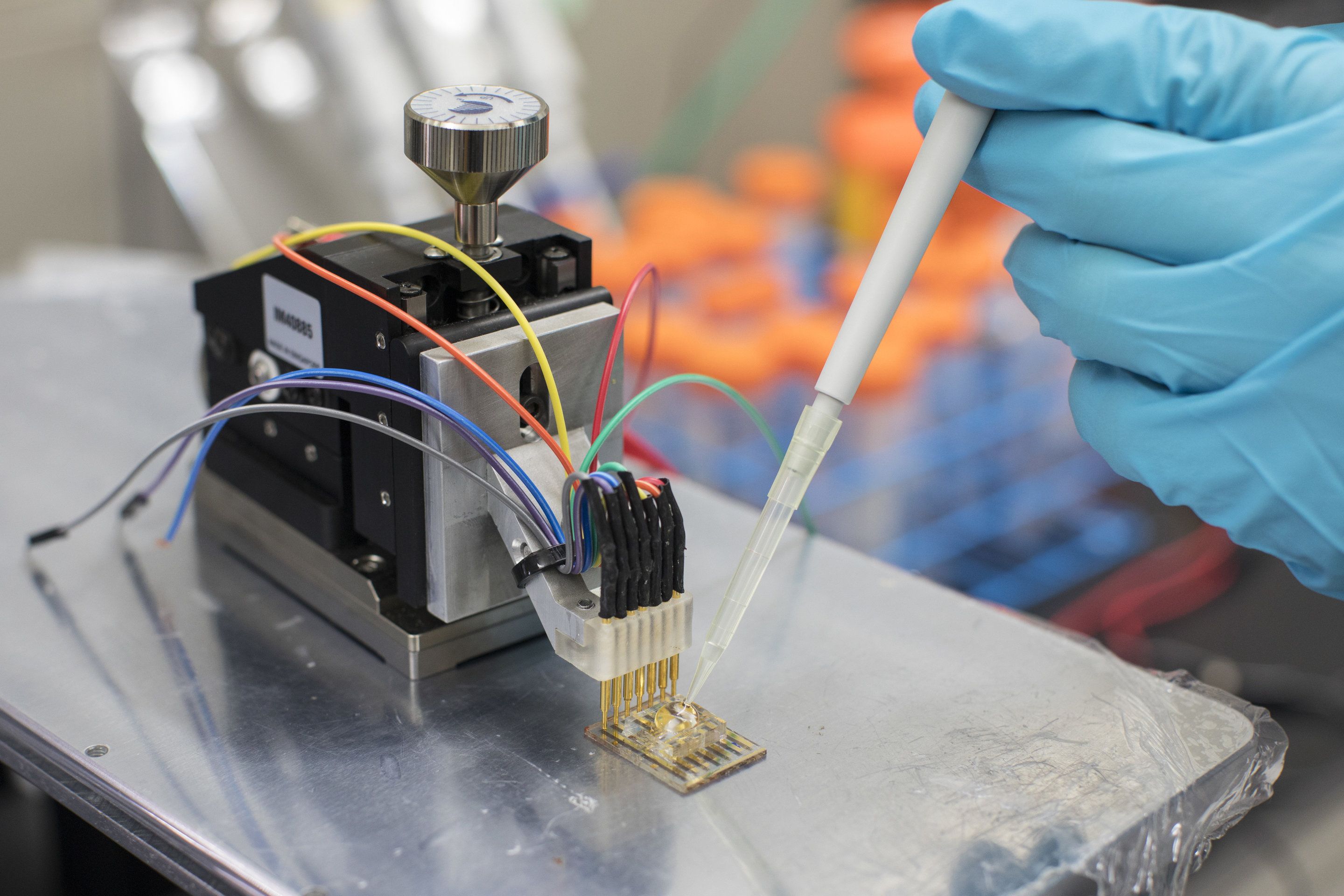An international team of researchers have developed a low-cost sensor made from semiconducting plastic that can be used to diagnose or monitor a wide range of health conditions, such as surgical complications or neurodegenerative diseases.
The sensor can measure the amount of critical metabolites, such as lactate or glucose, that are present in sweat, tears, saliva or blood, and, when incorporated into a diagnostic device, could allow health conditions to be monitored quickly, cheaply and accurately. The new device has a far simpler design than existing sensors, and opens up a wide range of new possibilities for health monitoring down to the cellular level. The results are reported in the journal Science Advances.
The device was developed by a team led by the University of Cambridge and King Abdullah University of Science and Technology (KAUST) in Saudi Arabia. Semiconducting plastics such as those used in the current work are being developed for use in solar cells and flexible electronics, but have not yet seen widespread use in biological applications.
